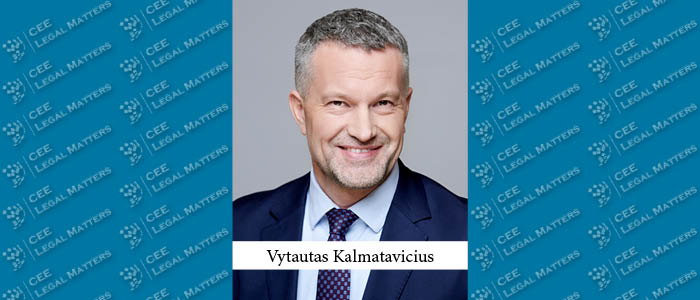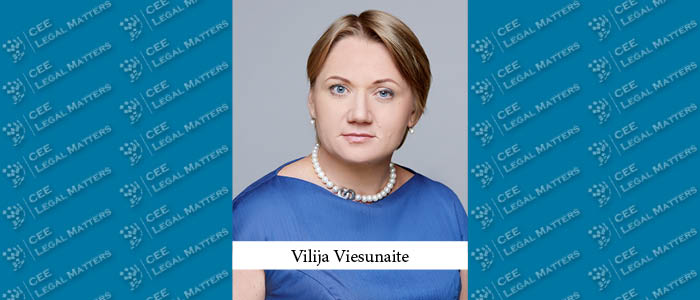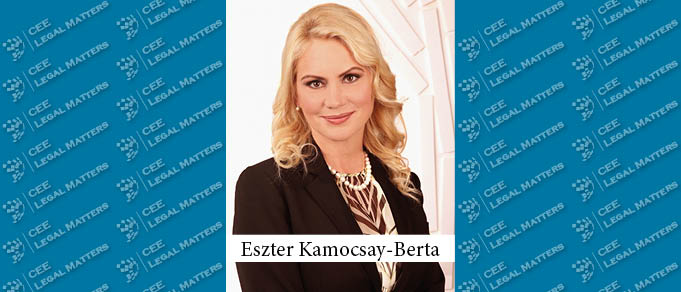Many might be surprised these days, but when Lithuania joined the EU in 2004, it was an electricity exporter, producing more energy than it consumed. The Ignalina Nuclear Power Plant was operational, and Lithuanian consumers were unaware of potential concerns over electricity prices.
Revised Labor Migration Rules in Lithuania
The regulatory framework of the Lithuanian labor market underwent several important updates. Most of these developments are concerned with regulating labor migration.
An Overview of Intellectual Property Practices in Lithuania
Lithuania’s intellectual property (IP) market is active in the area of trademarks and copyright, with businesses and creators starting to understand the value of IP protection. This trend does not yet extend to patents, but trade secrets are a highly litigated area, and their protection is broader than ever.
Changes in the Payment Order Procedure
The rules on the order for payment order procedure have changed significantly as of 1 October 2023. Many of the changes are related to the simplification and digitalisation of the procedure.
New Hungarian Construction Act Under Way – What Will Be The Main Changes?
The draft of the new Hungarian Construction Act was recently published for public consultation. Although the act only lays down the general rules, and details will be laid down in other regulations that are not yet known, several new features can already be seen in the draft. In our short article we summarise a few important changes.
Changes in Value-Added Tax (VAT) and When Can the 20% Rate Continue to be Applied?
From January 1, 2024, the general VAT rate will increase from 20 percent to 22 percent.
Can the Conduct After the Conclusion of the Contract be Considered When Assessing Sham Contracting?
When we consider the validity of a contract on the basis of the parties' will, it is usually the will at the time of the conclusion of the contract that is relevant. In a recent decision, however, the Supreme Court of Hungary has pointed out that in the case of a long-lasting legal relationship, such as an employment relationship, the parties' actions after the conclusion of the contract in order to perform it must also be taken into account when determining the contractual intention.
The Law on Personal Income Tax May Change in Hungary
Presently, a legislative proposal has been placed on the agenda, focusing on measures aimed at streamlining governmental operations. This comprehensive proposal encompasses various modifications, one of which pertains to an amendment to the personal income tax act (“PIT Act”).
Free Trade Agreement Between the Republic of Serbia and the People’s Republic of China
The Republic of Serbia and the People’s Republic of China officially signed a Free Trade Agreement (FTA) on 17 October 2023.
Remote Work in North Macedonia
The concept of a digital workplace, characterized as an employment environment allowing employees to complete tasks, collaborate, and function as part of a team, irrespective of location, has been around for some time but has gained significant traction in the aftermath of the COVID-19 pandemic. This surge in popularity can be substantially attributed to the measures enacted by the Macedonian Government to mitigate the impact of COVID-19.
Ukraine: Aligning Consumer Protection Law with EU Standards
The forthcoming Consumers' Rights Protection Law ("Law") in Ukraine, scheduled to take effect on 7 July 2024 (contingent on the cancellation of martial law in Ukraine), is poised to harmonize Ukrainian consumer protection legislation with key EU norms. This new Law aims to modernize consumer protection requirements, especially in the e-commerce context.
What’s the Cost of Unlawfulness – Part 2
In one of our previous texts (available here) we discussed misdemeanors, hence in order to analyze in more detail legislator’s penalty policy pertaining to legal entities we will here elaborate the economic offences which, along with criminal acts and misdemeanors, also fall into the penalty corpus of our legal system.
Are the Laws on Learning About Occupational Health and Safety Rules Changing for the Better?
A package called “Provisions on further simplification of the functioning of the state” has been discussed at the Hungarian Parliament in the autumn of 2023.
Poland: New State Aid Instrument
The Polish government has presented detailed conditions and modalities for providing support to investment projects of strategic importance for the transition to a net-zero-emission economy. The new State aid instrument implements the EU programme “Temporary Crisis Framework for State Aid measures to support the economy following the aggression against Ukraine by Russia”. The new financial support is to be regarded as a further incentive effect to attract new investments to Poland.
A Guide to Find Out If You Need a Well Permit
The National Water Resources Protection Map, required for the licensing of domestic and agricultural wells under the amendment to the Water Management Act, has been completed and is available on the website of National Water Directorate (in Hungarian: “Országos Vízügyi Főigazgatóság”). This Protection Map will play a central role in the future licensing of domestic groundwater wells.
Tender Opportunities in North Macedonia
Tender Opportunities in North Macedonia
What’s the Cost of Unlawfulness – Part 1
According to the definition contained in the Law on Misdemeanors (Official Gazette of RS no. 65/2013, 13/2016, 98/2016 – decision of CC, 91/2019, 91/2019 – other law and 112/2022 – decision of CC) (“the Law“), misdemeanor is an unlawful act established as misdemeanor by law or other regulation of a competent authority and which is subject to misdemeanor sanctions.
Ukraine: Improving Guidance on Identifying Ultimate Beneficial Owners
On 19 September 2023, the Cabinet of Ministers of Ukraine and the National Bank of Ukraine adopted Regulation No. 1011, introducing a comprehensive methodology ("Methodology") to identify the ultimate beneficial owners (UBOs) of legal entities in Ukraine. This significant development aims to enhance transparency and provide detailed guidance on the process of identifying UBOs, with the ultimate goal of ensuring that legal entities in Ukraine are able to correctly identify UBOs within their ownership structure and disclose this information to the competent authorities.

































